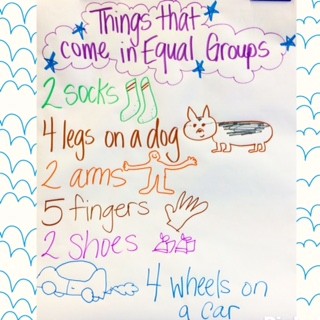Can I Persuade You to Read This?
Have you noticed some very persuasive kids around your house this week? That’s because we are working on persuasive writing! The students learned how to determine a goal, develop reasons and details that the goal is important, and then create an ending that reminds the reader of their goal. If you’ve been hearing some compelling reasons for later bedtimes or ice cream for dinner, now you know who to blame! 🙂
Reading and Writing
This week the students worked on drawing conclusions and making inferences as they read. This is a very important strategy to use as the students move into level N, O, and P books. To use this reading strategy the students are required to use the “clues” left by the author to figure out more than what the author wrote. One way to practice this strategy at home is to ask your child, “What do you know from this book that the author did not tell you?” Our grammar lesson focused on making nouns plural by adding “s” or adding “es” to words ending with “ch”, “sh”, “ss”, or “x.” We also looked at the differences between statements, questions, and commands. This week the students were introduced to the prefixes “pre” and “mis.” See if your child can tell you how those prefixes change the meaning of the base word to which they are added!
Here are the types of sentences we worked on this week:
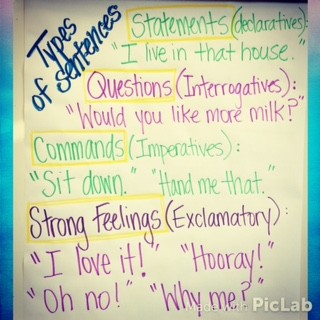
Playing our Super Sentences Game!
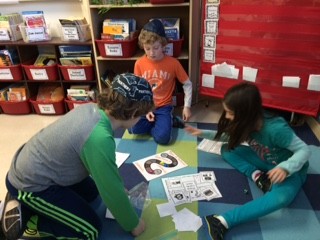
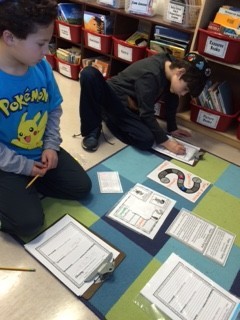
Working hard to our phonics centers!
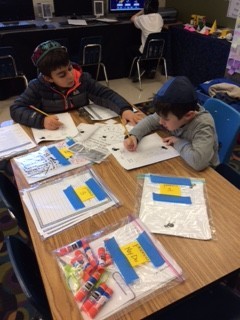
Writers thinking about their persuasive topics!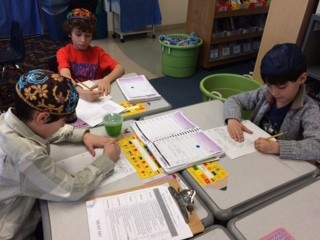
Here are readers looking closely at the text to make inferences. 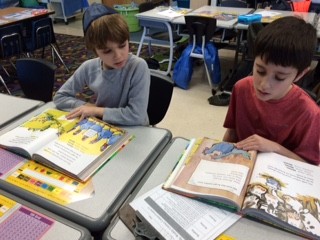
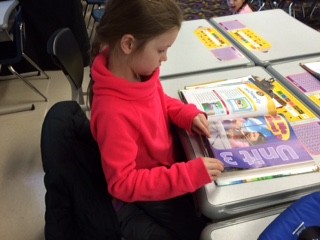
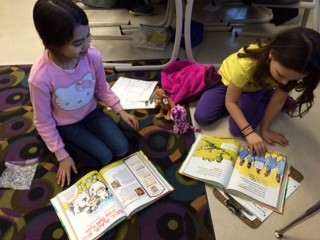
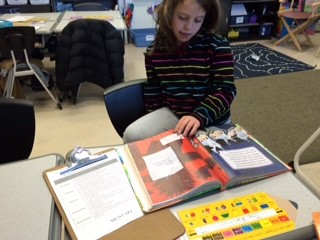
Next week, the students will read the realistic fiction book Violet’s Music and the biography, Wolfgang Mozart, Child Superstar. We will be focusing on asking questions to improve understanding, and looking at story structure. The students will continue to study the different types of sentences and will write opinion paragraphs. We will focus using our “voice” to help our reader better connect with our topic. Our vocabulary words for next week are: Nursery, shake, smooth, whenever, hours, alone, real, and museum.
The students will have the opportunity to learn about idioms next week (language that has meaning for native speakers of English but does not mean what it actually says.) Idioms are phrases like, “Barking up the wrong tree”, and “Can’t judge a book by its cover.” See if you can help your children notice the idioms they use everyday!
Spelling
This week we focused on words ending in “k” or “ck”. Next week, we will work on making singular nouns plural by adding “s” or “es” (just like we have been doing in reading!) The students will have a list of nouns and will be required to add “s” or “es” to make the word plural on their assessment.
Math
This week we completed the end of Unit 6 and have been working on beginning multiplication and division strategies. We have said that multiplication and division are “best friends!” So, if you know that 3 groups of 5 is 15, then you know that 15 split into 3 groups is 5! Unit 7 is titled Patterns and Rules. The students will focus on number patters, computation skills, and the application of mathematics through the use of data. The students will have a chance to practice doubling and halving numbers, collect real life data, and discover more complements of ten. Vocabulary for this unit will include median (or the middle number) and frequency.
Here are some things we came up with that normally come in equal groups. Multiplication is everywhere!
